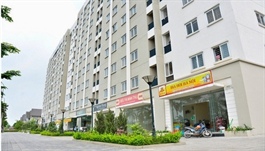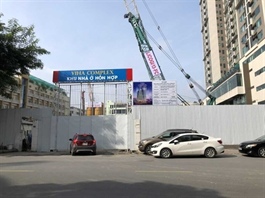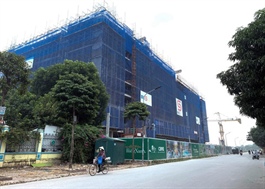Challenges raised in industrial cluster rejuvenation
Challenges raised in industrial cluster rejuvenation
Localities are seeking further details on the Vietnamese government’s plans to establish and expand industrial clusters.

The Ministry of Industry and Trade (MoIT) is soliciting feedback on the government’s draft decree on industrial clusters (ICs), with an emphasis on expenditure regulations, creating and expanding ICs, and choosing investors to build infrastructure. Vietnamese ICs typically concentrate on production, business, and industrial services for small- and medium-sized enterprises.
The MoIT will submit this preliminary decree to the government for review and approval by the end of June.
Many municipalities believe that if the authorities re-establish administration regulations, it will be challenging to establish and expand ICs, thereby hindering their future development. Currently, in addition to legal issues relating to land, localities face challenges in managing the transition of the clusters partially or entirely funded by the state budget to businesses, due to the absence of specific regulations.
Clusters administered at district-level are “challenging to draw in secondary investment due to insufficient infrastructure,” Bui Duc Hanh, deputy director of the Department of Industry and Trade of Thai Binh province, said in late April. “Some ICs are planned primarily on rice land, but the complexity of converting land use purposes is impeding execution.”
According to existing regulations, a condition for the establishment of new ICs and their expansion is that they must achieve an average occupancy rate of at least 50 per cent.
Due to not yet obtaining the permission of the people involved and low compensated land prices, site approval for projects on the construction and operation of infrastructure in ICs face challenges.
Hanh said that the issue of housing construction licences for foreign experts and labourers in ICs is also making it difficult for investors.
Expanding and altering ICs is of particular interest to industrial development communities with limited land resources. Pham Khac Nam, deputy director of the Department of Industry and Trade of the northern province of Bac Ninh, said that the draft decree ought to enhance the regulation modifying the size of ICs since this generally changes during the process of establishing such clusters in the locality.
“This modification is extremely significant as Bac Ninh has 20 ICs that must alter land use purposes because they are located in a residential area,” Nam said. “In this regard, localities will be able to eliminate obstacles if the new decree includes expanded regulations, including adding ICs to the directory of provincial clusters and including MoIT implementation guidance.”
New decrees have established a solid legal framework for the formation and administration of ICs, but they have also uncovered numerous deficiencies. Nguyen Van Thinh, deputy director of the MoIT’s Department of Local Industry and Trade, determined that a lack of alignment in legal documents pertaining to land, investments, government funding, and construction had caused local application issues.
“Vietnam lacked a sufficiently powerful mechanism to entice business investment in industrial cluster infrastructure. Communities must adapt and expand ICs to satisfy the production space requirements of businesses,” Thinh said. “During the previous decade, many localities failed to plan for industrial cluster expansion, and provincial planning for 2021-2030 remained sluggish.”
Since 2022, the MoIT has held four consultations on IC management. The opinions of ministries, sectors, and localities were centred on several topics, including expansions and selecting investors to construct infrastructure. Two options were provided: integrating the process of establishing or expanding ICs, and carrying out distinct procedures for the approval of policies in accordance with the investment regulations.




























